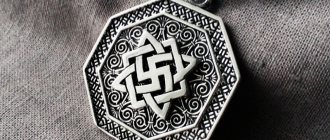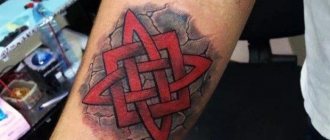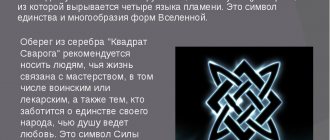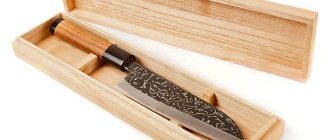“Forget me!” Have you ever heard or said these words? I first heard this “mysterious” phrase from my grandmother, but then I was too little to think about who this Chur was, whom people remember in moments of fear or surprise. And granny herself, I think, would have explained little to me about the strange Chur, since for several centuries his name has become only an occasionally used interjection. But let’s still figure out who Chur is, because he traces his history back to ancient times.
Chur - protector god
Antiquity and modernity
In Slavic folklore, which has survived to this day, there is a funny song. In it, the ruler of the lands named Chur asks people, distributing rich plots of land to them. “Who is this one for?” – asks Chur. The answer is a cheerful one: “Cheers, that’s mine!” After this, the good owner of the land surrounds the new allotment with boundary pillars, transferring it into the hands of the owner.
And here I can’t help but remember childhood games where I had to choose something edible among foreign objects. The presenter raised the image of an apple, and we shouted: “Cheers, mine!”
It turns out that from childhood we participated not just in a game, but in a so-called ritual dedicated not just to God, but to the patron saint of the clan - Chur. True, no one knew about this.
A tricky word, “Chur.”
A tricky word, “Chur.” One of the oldest boundary markers on our lands were considered wooden stakes dug into the ground - “chocks”, named after Chura, the Slavic god of the hearth, who guarded the boundaries of land holdings... Means “border, boundary, line” (according to Dahl). As they say, “Too much,” that is, “too much,” “too much, too much,” “over the border, across the border.” Or “Forget me!” - we fence ourselves off from something (“don’t touch me”). Besides this “Chur!” - this is also a condition (the limit of what is permitted) - “Don’t hit, don’t hide...”. Also, “to shun” is “to avoid someone, to protect oneself from others.” I’ll also attach the word “Devil, Draw” here. To draw a line is to put a line, to outline is to draw a contour, boundaries. Remember how, in defense from evil spirits, in literature and cinema, people draw a circle around themselves - they fence themselves off from the world, draw a boundary. “Squint” - cover or completely close the eyes - fence them off from the light with eyelids, protect them. From CHUR came the words: SHUN - move away, fence yourself off, draw a boundary, protecting yourself. To become frozen - to freeze, freeze, die, become motionless, like Chur on the border. TOO MUCH - it goes beyond all boundaries. EXTRAORDINARY – the same as excessive. i.e. beyond the borders of Chur. Origin of the Chur symbol. After the supreme God of the Slavs, Svarog, completed the process of creating the world, he instructed his grandson Chur to fairly divide earthly possessions between people. The legend says: when God Chur descended from heaven to the earth’s surface to divide the territories, many people, trying to attract the attention of the patron of borders, began vying with each other to shout “Chur, mine, Chur, me!” This expression remains in use today. To mark private property, Chur ordered all people to install wooden poles on the boundaries of their plots, which no one had the right to move without the owner’s knowledge. A little later, people began to carve idols of God himself from border pillars to show others that the possessions were under the protection of a powerful patron and to scare away evil spirits. Over time, the first Slavic amulets appeared with the image of the Chur symbol, which began to be used to protect the home and family hearth. SPHERE OF INFLUENCE: God Chur is considered cleansing, delivering from everything unclean and evil. Chur is also called Kap, the image of God in sculpture. Without Chur it is impossible to complete a single Old Slavonic ritual, for he is a true protector, instilling horror in everything unclean. The meaning of the amulet: In addition to protecting personal property, God Chur also protects a person from evil spirits, family curses and human slander. Very often, our ancestors used the Chur amulet to cleanse the site of various magical rituals. In moments of danger, people often shouted “Church me, Chur”, thereby calling for help from the great patron. The word “Chur” was customary to designate a magical field that is capable of restraining any evil spirit. Therefore, this symbol is often interpreted to mean “protect yourself in a circle.” Ancient Slavic ideas about Chura, as well as its true essence and image, are stored in the language itself. For example, the word “chur” is an expression that is often used to mean a boundary, a boundary, and sometimes it was even used to demonstrate one’s own dissatisfaction or disapproval. “To shy away” means to fence yourself off, go aside, avoid. The Chur amulet helps not only to protect the home and family from any encroachments from the outside, but also cleanses from everything unclean and evil..
Chur guarding the borders
Since ancient times, the Slavs have revered Chur as the god-protector of the land. A mound of earth was poured near the boundary post, which meant that it was forbidden to disturb the boundary. Anyone who would risk moving the pillar to another place, guided by his own interests, would certainly pay the price - Chur did not forgive injustice and deception.
The border strip between the fields itself was also considered a sacred place. It was forbidden to cross it without the permission of the owner of the site. In honor of Chur, on the days of the festivities dedicated to him, people sang hymns, walking around the perimeter of the field and driving cattle ahead. Often they brought gifts to Churu. To do this, it was enough to leave milk or honey at any of their boundary posts.
Demigod and protector
The famous ethnographer Sergei Maksimov, in his book “Winged Words,” which was first published in 1890 in St. Petersburg, calls Chur a pagan demigod. According to the scientist, this mythical creature was widely revered by our ancestors.
He was respected and feared because Chur established and protected: the boundaries of the worlds (otherworldly and human); boundaries of land plots; boundaries of natural areas, lakes and forests; property boundaries. Chur was a patron and helper who could punish anyone who violated the rules he set. Since the Slavs were farmers, their main asset was land. Along the borders of their possessions, people installed logs - small round wooden posts on which the designations of the owners of a given plot were carved. It was believed that the Chur severely punishes the unauthorized seizure of someone else's land, so initially the Churbans were images of this pagan idol and served as a kind of warning talisman for possible violators.
Our ancestors believed that Chur was stronger than the Devil, since he was an assistant to Mother Earth herself. This mythical creature was called upon by healers, drawing a magic circle designed to protect people from the machinations of the minions of evil.
That’s why today, exclaiming “Keep away from me!” a person turns to a pagan force that can protect him from the inhabitants of the other world, and with the exclamation “Cheer up!” calls the demigod to witness that this find is now his personal property. And the mythical helper supposedly asserts the proclaimed right.
So, by finding out the origin of only one word “too much,” we looked deep into the centuries and learned a lot of interesting things about our distant ancestors who lived before the adoption of Christianity in Rus'.
"Wooden" god Chur
But, you must admit, it was somehow strange to worship the pillar, and therefore soon not just tall logs, but wooden images of Chur appear at the borders of the fields. In fact, they represented the same pillar on which the stern eyes of the god, a straight nose and the lines of a long beard were skillfully carved.
Often such sculptures were decorated with ornamental amulet designed to enhance the power of Chur. What’s interesting is that even today in our language there are words reminiscent of the “woody” appearance of Chur - for example, “churban”, “churbak”. Scientists often compare Chur with the ancient Roman god Termus, who also protected the borders of lands and was embodied in pillars at the borders of fields.
Often images of Chur were made on border pillars
God Chur
Another version that has the right to exist. In the mythology of the ancient Slavs there was a god Chur. This deity was responsible for the inviolability of borders. The Slavs sincerely believed that after the earth was created, God allowed people to take a plot of land for themselves so that their tribes could live here. People reacted quickly and found convenient plots of land.
To attract the attention of the mythological deity, people, turning to him, said: “Church, this is for me!”, “Church, mine!” Thus the best places were distributed. God Chur commanded that the borders be marked with special wooden posts - “blocks”. And now they were indestructible. Legend has it that no matter how much they tried to remove the pillars and move the created boundaries, nothing worked.
Phraseologism has especially taken root in children's minds. Having noticed an interesting toy, the child runs to it with the words “Oh my goodness!” Previously, if this happened in kindergarten, then words also helped a lot. No one dared to get closer to what they had already “freaked out”. Apparently, the memory of the subconscious is so deep.
Found a violation? Report content
Defender from Evil
Folklorist researcher A. Afanasyev notes another, no less important role of Chur in the life of our ancestors. He was considered the personification of the fire that burned in the hearth. Thus, Chura can be called the protector of the entire clan, the patron of the family, in fact, a very powerful brownie.
Chur helped not only to maintain comfort in the home and bring harmony to the house, but also protected his charges from evil forces. That’s where that “Forget me!” came from.
If a person was frightened by a strange phenomenon, some inexplicable, “devilish” events, he uttered the cherished words. They embodied the call to a guardian god. Chur covered the one who asked for help with an invisible and impenetrable ring, which the devils could not overcome.
Fortune telling, protective words against the evil eye and other evil
The Churovs were invited by young girls to help them tell fortunes about their betrothed. How did this happen? At night the girls went to some crossroads. Then they drew a circle with an aspen rod. Then they entered the circle one at a time. Putting their ears to the ground, they listened. If a sound is heard, it means the girl will get married this year. However, during the process of fortune telling, apparently due to nervous tension, the girl may sometimes imagine a terrible sound: a whisper, a howl or a scream. Here is the time to call for help in the form of an army of ancestral spirits. “Forget me!” - the girl screamed or whispered. It was believed that an indestructible circle formed around her, preventing evil spirits from sneaking up on her.
When the village learned that Yuri had left his wife, they did not condemn him, but supported him
Coffee production and delivery harm the climate, but it can be changed
YouTuber is giving away $2,021 to strangers so they can have a happy new year
When the average ancient Slav could arouse the envy of his neighbors with his appearance or his possessions, he would certainly utter the protective words “Beware of me” and, slightly biting the tip of his tongue, confidently continued on his way: the ancestor is now with him, and no dashing can be realized, he cannot Dashing people will jinx it.
Chur are our ancestors
It must be said that Chur did not occupy a high position among the Slavic deities, but this did not detract from his role in people’s lives. He was often compared to the keeper of the secret of the boundaries between worlds. It was only thanks to Chur that spirits from the other world did not cross the cherished line to destroy the world of the living.
Sometimes Chura was compared to the spirits of deceased ancestors. As O. Klyuchevsky notes in his works, the name Chura was often attributed to the deified ancestor of a family or an entire clan. We can notice this in the ancient word “ancestor” (“ancestor”).
The ancient Slavs were a wise people with a high level of spirituality, and therefore believed in the power of the souls of their ancestors. Chur could take the form of ancestors, coming to a person in dreams and warning him of danger. This god could be found in a field, not far from the boundary line.
Chur was described in different ways: either he took the form of an old man with a long gray beard, or he became a fair-haired youth. The main feature of the Chur in a variety of guises is its bright eyes the color of the sky.
What is noteworthy is that Chur could also become an amazing beast - a wolf with blue eyes. This god never did evil, but came to people with news. Sometimes he turned to Veles for help in saving the people. I have noticed more than once that these two gods were closest to the problems of mortals.
Chur - spirit of ancestors
Some Slavic tribes called the spirits of their ancestors churs or shchurs. This, by the way, is where the word “ancestor” came from. The function of the schurs was akin to the work of the god of the border, Chur. Blocks or chocks - wooden figurines that personified the ancestor of the clan, also protected against evil spirits. To call upon such a spirit for help, they shouted: “Forget me!”
Thus, a protective circle was established around the person who shouted the magic words. It was believed that evil spirits, for example, a goblin, could not cross its borders. Travelers and hunters often used this protection of their ancestors. Having gotten lost, they turned their caftan inside out and said: “It’s too much!” In this way they broke the devil's spell.
Churov were often called upon during fortune-telling. For example, girls told fortunes about their betrothed at a crossroads. They drew a circle, and then took turns lying down on the ground, leaning their ear to it, and saying: “Miss me.” After this, the fortuneteller heard some sound. If he promised a bad future, then the girl quickly left the circle and said: “Forget me!” So she called on her ancestors for protection. This phraseology of the ancient Slavs has become stronger in modern Russian speech.
Amulet Chura
Churov Day
Of course, such a protector god could not do without a holiday dedicated to him. The main day for honoring Chur was July 27. On Churov Day, as this festival was called, people went to the boundary posts with gifts.
Housewives cooked kutya, which was considered God's favorite treat. The heads of families walked around their land holdings, asking God to sanctify their fields. The day ended with dinner in the family circle, where everyone pronounced the cherished word - the name Chura.
Amulet Chura
It turns out, “Forget me!” in the ancient understanding, it sounded like a prayer to an ancient god. And even though Chur did not participate in the epic battles of the gods, was not the patron of warriors or kings, he was content with his calling. Not only the entire nation needs protection from above, but also individual families, which Chur protected. Colloquial mention (albeit unconscious) of this god has passed through many centuries and has survived to this day.
STARK
“Forget me!” (A.L. Toporkov, book of historical sciences): language research. Published in the journal Russian Speech. - 1991. - No. 1. - pages from 151 to 155.
download and read online for free
The material provides a brief overview of the history of the emergence of words and expressions associated with the introduction into scientific circulation of the word “chur!” and the expressions “mind me!” For many, this word and expression may seem outlandish, rarely used now, and irrelevant. In part, this is true. This word was especially popular among rural residents in the 19th and 20th centuries. In this word we hear something terrible, mysterious, unknown.
It turns out that the word “chur” was most often previously used as a magical supernatural purpose in rituals. With its help they drove out spirits and removed damage. This material also provides a rather interesting summary of the linguistic (linguistic) roots of the word “chur”. All this is discussed in this study.
Forget me - what does this expression mean and where did it come from, read in this material. The full text is below:
In children's games, the “magic” word chur is often found: Chur, I’m not the one driving!, Chur, don’t stain!, Chur-chura!, Churiki! It came to children's environment from folk superstitious rituals and in the past was widely used not only by children, but also by adults.
The interjection chur has long attracted the attention of linguists. In the middle of the 19th century, and even later, it was compared with the word ancestor and it was believed that schur, or chur, was one of the deities of the pagan Slavs. This opinion is expressed in the works of folklorist-mythologist A.N. Afanasyev, historians S. M. Solovyov and V. O. Klyuchevsky, in the book of everyday life writer S. V. Maksimov “Winged Words”.
Two newer etymological dictionaries explain its origins differently. According to the “Etymological Dictionary of Slavic Languages,” edited by O. N. Trubachev, the interjection chur is “Old enough, an exclamation expressing a prohibition, originally, apparently, in a magical context; therefore, it can be considered as an irregular (expressive, euphemistic) transformation of the word *čьrta... The semantics of a trait, line, boundary is clearly noticeable in the examples... cases of substantive use of the form chur (too) are secondary - based on the interdom. too much..." (ESSYA. M., 1977. Issue 4.) [151]
The Proto-Slavic Dictionary, edited by F. Slavsky (vol. II, 1976), traces the word *curъ to the Indo-European root *keur - “to cut, chop” and attributes the original meaning of “a magical line, a delineated circle that no evil spirit can cross "
We will not substantiate any etymology of the word chur, but will try to outline its cultural context. The interjection chur and its derivatives are known mainly in East Slavic languages: Russian and Belarusian dialect chur, Ukrainian, Belarusian and Russian dialect tsur, dialect forms: churu (Smolensk), chiru (Mogilev), chura (Tver, Kaluga); Polish dialectal cur (in the expression niech cie cur wezmie “damn you”) is a borrowing from Ukrainian.
For the semantics of the interjection chur, those cases when it acts as a noun are especially important. In V.I. Dahl’s dictionary, chur is interpreted as “edge, limit, measure”, the old “border, border, line, boundary”, for example, do not go too far, beyond the line, too ours. In Russian dialects, phraseological units with substantivized chur are widely represented: without chura (chura) “too, without measure” (Ryazan), without chura “the same” (Pskov, Tver), without chura (dialects of the Amur region); not to know (understand) chura “not to feel the limits, not to know the limits” (Ryazan), not to know the chura “not to know the limits” (Don), “not to adhere to the established rules” (dialects of the Ob region), not to understand the chura “the same” ( Omsk). The origin of the adverb too is connected with phraseology of this kind: Russian dialect cherez churu (chur) “too, too much” (Ryazan); don’t pour too much (Explanatory Dictionary of V.I. Dahl); Even a horse won’t step too far (Afanasyev A.N. Poetic views of the Slavs on nature).
The modern four-volume Dictionary of the Russian Language (3rd ed. M., 1988. Vol. 4) gives two meanings of the interjection chur: 1. (Usually in combination with the words: “me”, “us”). Outdated An exclamation meaning a prohibition to touch something, to do something. action (in spells against “evil spirits”, in games, etc.) and 2. Unfolding. An exclamation indicating a requirement to comply with something. agreement, some kind condition.
Chur is often combined with personal pronouns, for example: Russian dialect chur me from him “I don’t want him, I don’t want to be behind him” (Novgorod, Smolensk), Belarusian chur mene from tsebe, Ukrainian tsur tob1, (not) hai yomu tsur and etc. The specificity of the Ukrainian language is manifested in the fact that the Ukrainian tsur is combined only with 2nd and 3rd person pronouns. [152]
The interjection chur (tsur) is part of quite a few formulas-amulets against evil spirits. Some of them are widespread, others are local in nature, cf. Russian and Belarusian mind you! our place is holy, Ukrainian tsur - our mistse is holy, Russian chur this place!, chur, chur, chur! the word is not said here!, too much dialect (Novgorod), too much! (Vologda, Siberian), never mind, never mind God, never mind God, never mind (Pinezhsky district of the Arkhangelsk region), never mind this listening, amen to this matter (Semovo Chagodoshchensky district of the Vologda region), mind you, someone else's thought, mind you, someone else's thoughts ( Zaozerye, Mezensky district, Arkhangelsk region), mind you, my thoughts, mind you, my thoughts, mind you, dead eyes (Shardonem, Pinezhsky district, Arkhangelsk region). In the Ukrainian language, the two-term formula-amulet tsur tobi (yomu, etc.), pek tobi (yomu, etc.) exists with particular stability. Since the amulet is often directed against the evil eye, many Ukrainian formulas mention the eyes: chur ta pek dashing eyes (Proskurovsky district of the Podolsk province), tsur of the eyes of the evil eye (Pyryatynsky district of the Poltava province). In southwestern Ukraine, the derivative word tsurakha is known: tsurakha with our eyes; In order not to jinx it, if you praise something, you need to look at your nails or at the ceiling and say: “Hello!” or “tsurakha” (Grinchenko B. D. Dictionary of the Ukrainian language. Kyiv, 1909).
Usually the interjection “chur” is used in fortune telling. For example, in the Kadnikovsky district of the Vologda province on Christmas Eve, “in some places girls prepare tea for two people in an uninhabited hut, sit down at the table and say: “Betrothed, mummer, come to me for tea.” In the event that a ghost appears and sits next to the fortuneteller, the latter must say: “Too bad, that’s enough, I don’t want it too much,” otherwise it will crush you” (Neustupov A.D. Yule customs in Kadnikovsky district // Izv. Archang. -va studied Russian North, 1913. No. I). Chur could protect against evil spirits in other cases. In Southern Siberia, according to the description of the Altai local historian S.N. Gulyaev (1847), it was believed that “if a leshak stands over a lost person and, responding to a call with the voice of a friend, lures him into the thicket and wilderness, then, turning his dress inside out, like As usual, inside out, you have to shut yourself up, saying: no matter what, that’s enough!” (Card index of the Dictionary of Russian Folk Dialects).
In many cases, protection from evil spirits was provided by drawing a magic circle. In the Demyansk district of the Novgorod province at the beginning of the 20th century, girls told fortunes at Christmas time in this way: “All the girls take off the body crosses from their necks and go to the crossroads. Here, standing in the very center of the “cross”, they outline... [153] a circle with a torch, saying: Look away from me. Each of the fortune tellers, in turn, lies down in the middle of the circle, puts her ear to the ground and listens carefully. If... you hear a bell ringing or a dog barking, then... the girl... will get married this year; if a child’s cry is heard, then she will not be married, but will have children; singing a funeral prayer or chopping wood means death” (Zelenin D.K. From the life and poetry of peasants of the Novgorod province // Living Antiquity. 1905. No. I).
One might think that in some initial situation the person said “Chur!” precisely when outlining oneself in a magic circle. It is characteristic that the verb zachurovatsya could denote not only phenomena of speech activity (“to protect yourself from something with a word”, “when playing, say “chur” as a sign of refusal to participate in it for some time”, etc.), but also a certain action - outlining oneself in a magic circle. According to the Belarusian local historian A. E. Bogdanovich, to close oneself at the end of the 19th century meant “to protect oneself from evil spirits, and also... to draw a line with coal or chalk or something else on the ground or on the floor, beyond which, according to legend, no evil spirit power cannot transfer. This is how all those who have to deal with evil spirits, especially vampires, “shun”; this is how the heroes of folk rolling pins “shun” in similar cases” (Bogdanovich A. E. Remnants of the ancient worldview among the Belarusians. Grodno, 1895).
The functional orientation of delineation is to divide space into two unequal parts: internal and external, endowed with the characteristics of one’s own and someone else’s, safe and dangerous, closed and open, etc. Thus, drawing a line simultaneously corresponds to two procedures - the assignment of internal space and alienation of the external.
Despite the significant variety of contexts in which the interjection chur functions, we can distinguish two poles towards which its semantic structure gravitates: on the one hand, appropriation, a call for help, protection and, on the other, repulsion, denial, prohibition (cf. Russian dialect tsur tabe! “go away” (Kursk), Belarusian chur mene!.
For the positive range of meanings of the interjection chur, cases when it performs the function of a verb in the imperative mood are especially indicative. For example, in one Russian conspiracy, chur is synonymous with the verb save: “Chur mene (dialectal form of the accusative case), Lord!” (Tula - Maikov L. Great Russian spells // Western Russian geographical islands in the department of ethnography[154]f. 1869. T. 2), cf. Smolensk “Chur Box of every cartilage!” (Dobrovolsky V.N. Smolensk regional dictionary. Smolensk, 1914).
One might think that the semantics of the interjection chur has retained the same duality that is characteristic of drawing a magic circle - an action with which the very origin of the word chur may be associated. It is clear that the same exclamation Chur me! (for example, in case of sudden fright, when meeting with evil spirits) in an undivided form it contains both a call for help to good, divine forces and a spell from hostile, devilish forces.
As the supernatural disappeared from our lives, the “magic” word chur was increasingly forced out of the language of adults and became the property of children.
A.L. Toporkov, Candidate of Historical Sciences











